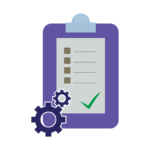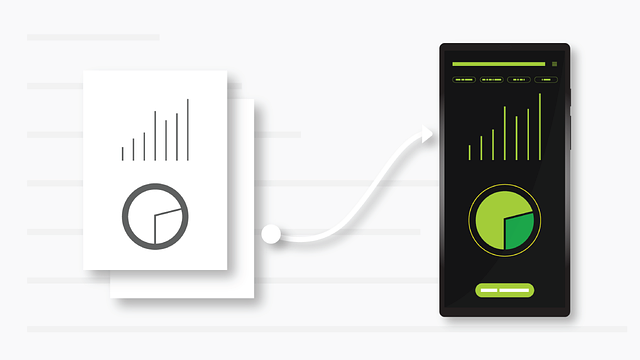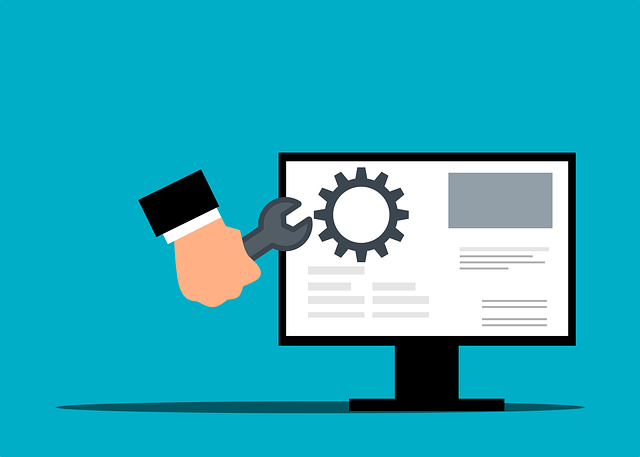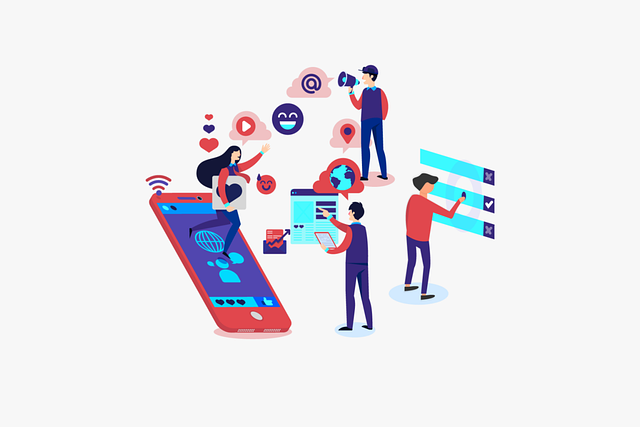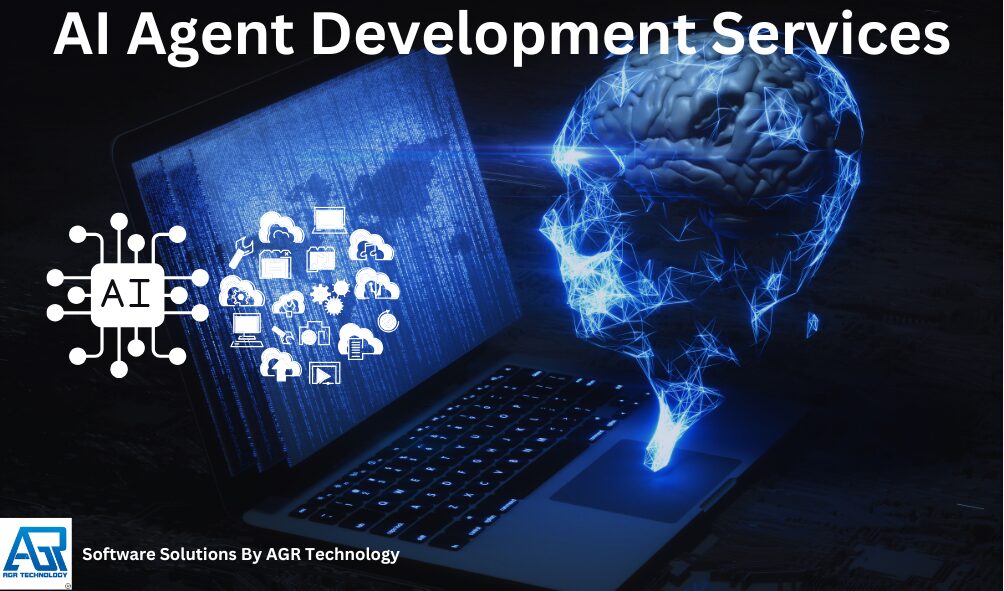
AI agent development has transformed how businesses approach automation. Unlike traditional software that follows rigid rules, AI agents use machine learning, natural language processing, and knowledge retrieval systems to make decisions based on real-time data. These autonomous systems interact with users, process information, and continuously learn from experience.
We’ve seen firsthand how custom AI agent development services can accelerate AI adoption and help overcome common implementation challenges. These tailored solutions align with unique workflows and industry standards, delivering significantly more value than one-size-fits-all AI tools. From customer service to workflow automation, AI agents can seamlessly integrate with existing technologies like CRM and ERP systems, ensuring efficient operations across your business.
Get in contact with our team for help with your business
Reviews from our happy clients:
Proudly supporting clients of all sizes to succeed through digital solutions
Why work with us?
Understanding AI Agents and Their Impact
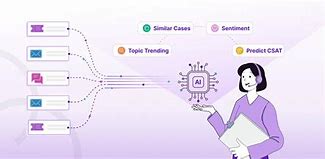
AI agents represent a transformative force in the digital landscape, serving as intelligent computer programs that perform specific tasks autonomously. These sophisticated systems are reshaping how businesses operate by automating processes, improving efficiency, and delivering valuable insights from complex data.
What Are AI Agents and How Do They Work
AI agents are intelligent software entities designed to perform specific tasks or make decisions on behalf of businesses or individuals. Unlike traditional software that follows preprogrammed rules, AI agents leverage machine learning models, natural language processing (NLP), and knowledge retrieval systems to process information and make decisions based on real-time data. These agents analyze situations, learn from interactions, and take appropriate actions without constant human intervention.
AI agents operate across various architectures including:
- Two-agent systems – Creating focused interactions between specialized AI components
- Hierarchical workflows – Organizing agents in parent-child relationships for complex decision-making
- Sequential processing – Arranging agents in a chain to handle multi-step tasks
- Non-hierarchical collaborations – Enabling peer-based agent interactions for distributed problem-solving
The most effective AI agents excel at well-defined, specific tasks rather than attempting to function as general-purpose solutions. They seamlessly communicate with other agents, harness the power of large language models (LLMs), and interface with human inputs to autonomously perform tasks or gather feedback.
The Business Value of Custom AI Agents
Custom AI agents deliver superior business value compared to pre-packaged AI tools through their tailored functionality and integration capabilities. The distinction becomes clear when examining specific business benefits:
- Alignment with business processes – Custom AI agents conform to unique workflows, policies, and industry standards, creating solutions that fit existing operations perfectly
- Unlimited functionality potential – Unlike pre-built tools with fixed capabilities, custom agents can be expanded and fine-tuned as business needs evolve
- Seamless system integration – Custom agents connect directly with enterprise systems, ensuring real-time data synchronization across your technology infrastructure
- Enhanced data security – Self-hosted or custom-built AI agents provide complete control over data protection and compliance measures
AI agents drive business transformation across numerous domains, including:
| Domain | AI Agent Applications |
|---|---|
| Customer Service | Automated support, inquiry routing, personalized assistance |
| Sales | Lead qualification, follow-up automation, opportunity identification |
| Productivity | Scheduling, email management, task prioritization |
| Research | Information gathering, data analysis, report generation |
| Data Entry | Various tasks such as recording data and storing in different formats |
| IT Operations | System monitoring, issue detection, automated remediation |
| Healthcare | Patient screening, appointment scheduling, preliminary diagnostics |
| E-commerce | Product recommendations, inventory management, demand forecasting |
The business impact of these applications includes reduced operational costs, improved customer experiences, accelerated decision-making, and the ability to scale operations without proportional staffing increases.
Key AI Agent Development Services
![]()
AI agent development services transform businesses through intelligent automation solutions tailored to specific operational needs. These services leverage cutting-edge AI technologies to create systems that work autonomously, make decisions, and continuously improve over time.
Custom AI Chatbot Development
Custom AI chatbots deliver context-aware interactions that surpass standard pre-programmed responses. These sophisticated solutions integrate with industry-leading generative AI engines like OpenAI ChatGPT, Google Gemini, and Anthropic Claude to create truly intelligent conversational experiences. By training these chatbots with business-specific data—including company documents, website content, and proprietary information—they authentically represent brand voice and expertise while handling complex customer queries with human-like understanding.
Virtual Assistant Creation
Virtual assistants function as independent decision-makers capable of executing tasks autonomously across various business functions. Unlike basic AI tools, these assistants anticipate needs, tailor interactions, and build long-term customer loyalty through personalized experiences. They excel at solving multi-step problems—optimizing logistics routes, predicting delays, automating risk assessments, and remembering individual preferences for future interactions. Advanced virtual assistants continuously learn from interactions, improving their performance and adaptability over time.
Multi-Agent Systems (MAS) Integration
Multi-agent systems employ collaborative AI entities working in coordinated environments to solve complex problems through decentralized decision-making. MAS solutions excel in scenarios requiring distributed intelligence, such as supply chain logistics optimization, financial modeling, and blockchain applications. These systems create synergistic workflows where specialized agents handle different aspects of complex processes, communicating and coordinating to achieve outcomes beyond what single agents could accomplish independently. Integration techniques utilize API architecture, microservices, and containerization to ensure seamless data flow between agents.
Automated Workflow Solutions
Automated workflow solutions replace repetitive tasks with adaptive end-to-end automation that evolves with changing business conditions. These implementations free teams from manual processes, allowing focus on strategic initiatives while AI handles operational details. The development process includes comprehensive needs assessment, custom design, rigorous testing, and deployment using state-of-the-art technologies. Regular model fine-tuning and performance monitoring ensure these solutions maintain peak efficiency through continuous improvement cycles, adapting to new challenges and requirements as they emerge.
Popular Use Cases Across Industries
AI agents transform operations across multiple sectors by automating complex tasks and delivering insights from data. These intelligent systems adapt to specific industry requirements, enabling businesses to overcome operational bottlenecks and enhance customer experiences.
Customer Service and Support
AI agents revolutionize customer service by providing 24/7 assistance across multiple channels. These systems handle basic inquiries instantly while intelligently routing complex issues to human agents, creating a seamless support experience.
Some examples include:
- Automated ticket management systems that categorize and prioritize customer issues based on urgency and complexity
- Interactive troubleshooting workflows that guide customers through step-by-step problem resolution
- Personalized product recommendations based on customer browsing patterns and purchase history
- Sentiment analysis tools that detect customer emotions and adjust responses accordingly
Sales and Marketing Automation
AI agents streamline sales and marketing processes by analyzing customer data and automating repetitive tasks. These systems enhance lead generation, personalize customer interactions, and provide valuable insights for campaign optimization.
- Lead scoring systems that identify and prioritize high-potential prospects based on behavioral signals
- Email campaign optimization tools that personalize content and determine ideal sending times
- Sales forecasting engines that analyze market trends to predict future revenue opportunities
- Competitive intelligence gatherers that track industry developments and competitor activities
- Virtual sales coaches that facilitate realistic role-playing sessions for pitch practice and objection handling
Human Resources and Recruitment
AI agents transform HR operations by automating administrative tasks and enhancing talent acquisition processes. These systems can reduce hiring time while improving candidate quality through unbiased screening and assessment. HR departments leverage AI agents for:
- Resume screening tools that evaluate candidate qualifications against job requirements
- Interview scheduling systems that coordinate availability across multiple stakeholders
- Employee onboarding platforms that automate paperwork and training assignments
- Performance analytics dashboards that identify productivity patterns and development opportunities
- Employee engagement monitors that assess workplace satisfaction through sentiment analysis
Finance and Operations Management
- Automated bookkeeping solutions that categorize transactions and reconcile accounts
- Invoice processing systems that extract data and initiate payment workflows
- Inventory management tools that monitor stock levels and predict demand patterns
- Fraud detection algorithms that identify suspicious transactions in real-time
- Demand forecasting models that optimize supply chain operations and reduce holding costs
The AI Agent Development Process

The AI agent development process transforms conceptual ideas into functional, intelligent systems through a structured methodology. Our approach encompasses four critical phases that ensure the creation of high-performing AI agents tailored to specific business requirements and use cases.
Strategy and Requirements Analysis
Strategy and requirements analysis forms the foundation of successful AI agent development. During this phase, we conduct comprehensive business process evaluations to identify automation opportunities and determine how AI agents can deliver maximum value. This includes:
- Stakeholder interviews to gather insights about operational pain points, current workflows, and desired outcomes
- Data assessment to evaluate available information sources, quality, and accessibility for training AI models
- Technical environment evaluation to understand existing systems, integration points, and technical constraints
- Use case prioritization to identify high-impact applications with measurable returns
Starting with a thorough strategy phase prevents costly redevelopment later and ensures the AI solution addresses genuine business needs rather than implementing technology for its own sake.
Design and Prototyping
Design and prototyping translates requirements into tangible AI agent architectures and interaction models. This stage focuses on creating a blueprint for development and validating concepts through:
- Conversation flow mapping to design natural language interactions and decision pathways
- Architecture selection between two-agent, hierarchical, non-hierarchical, or sequential workflows based on use cases
- Interface prototyping to visualize how users will interact with the AI system
- Workflow simulations to validate the proposed solution before full development begins
High-fidelity prototypes enable stakeholders to test AI agent capabilities with actual users, collecting valuable feedback that refines the design before significant development resources are committed.
Development and Integration
Development and integration brings AI agents to life through specialized programming and system connections. Our custom software development process includes:
- LLM selection from options like GPT-4, Gemini, or Mistral AI based on specific use case requirements
- Custom model training on domain-specific data to enhance performance in specialized tasks
- API integration with existing enterprise systems like CRM, ERP, and knowledge bases
- Enhanced inference capabilities including caching, error handling, and templating to overcome model limitations
- Multi-agent orchestration to enable seamless collaboration between different AI components
Our dual-track agile development approach separates discovery and delivery sprints, allowing new ideas to undergo proper evaluation while maintaining development momentum.
Testing and Deployment
Testing and deployment ensures AI agents perform reliably in real-world conditions. This critical phase includes:
- Performance testing to evaluate response accuracy, speed, and reliability under various conditions
- Security assessments to identify and address potential vulnerabilities in AI systems
- User acceptance testing with actual end-users to validate usability and effectiveness
- Phased deployment starting with controlled rollouts before full implementation
- Monitoring setup to track ongoing performance metrics and identify improvement opportunities
After deployment, we implement continuous improvement cycles with regular model fine-tuning based on real-world usage data, ensuring AI agents evolve with changing business conditions and user needs.
Technical Considerations
AI agent development requires careful technical planning to ensure successful implementation. These considerations determine the effectiveness, security, and overall performance of AI systems within your business environment.
LLM Integration Options
LLM integration forms the foundation of effective AI agent development. Various integration approaches include API-based connections, containerized deployments, and on-premises solutions that accommodate different operational requirements. Fine-tuned models like GPT-4, Claude, or open-source alternatives such as Mistral and Llama offer distinct advantages depending on your use case. API integrations provide quick implementation with minimal infrastructure investment, while on-premises deployments deliver enhanced control over sensitive data processing and reduced latency for time-critical applications.
Data Security and Privacy Protection
Data security stands as a non-negotiable element in AI agent development. Implementing end-to-end encryption for data in transit and at rest creates a robust defense against unauthorized access. Role-based access controls limit data exposure to only essential personnel, while anonymization techniques strip personally identifiable information before processing. Regular security audits identify potential vulnerabilities in AI systems, and compliance with regulations like GDPR, HIPAA, and CCPA ensures proper handling of sensitive information across different jurisdictions.
Scalability and Performance Optimization
Scalability ensures AI agents maintain performance under increased workloads. Cloud-based infrastructure with auto-scaling capabilities dynamically adjusts resources based on demand fluctuations, while distributed computing architectures distribute processing across multiple servers to handle complex operations efficiently. Performance monitoring tools track response times, throughput metrics, and resource utilization to identify bottlenecks. Caching frequently requested information reduces redundant processing, and asynchronous processing handles time-intensive tasks without impacting user experience.
Integration With Existing Systems
Seamless integration with existing business systems creates cohesive workflows that maximize ROI. REST APIs and webhooks establish standardized communication channels between AI agents and business applications like CRM, ERP, and customer service platforms. Custom middleware bridges compatibility gaps between legacy systems and modern AI technologies. Database connectors enable direct access to organizational knowledge, while unified authentication systems maintain consistent security across integrated components. Comprehensive testing protocols verify data integrity across system boundaries, ensuring reliable information flow throughout your operational ecosystem.
Choosing the Right AI Agent Development Partner
Selecting an optimal AI agent development partner significantly impacts the success of your AI initiatives. The right partner accelerates AI adoption, helps overcome implementation challenges, and prevents common pitfalls in AI agent deployment. Consider these essential aspects when evaluating potential AI development collaborators.
Essential Expertise and Capabilities
AI agent development partners must possess specialized technical knowledge and business acumen to deliver effective solutions. Look for teams with expertise in large language models (LLMs), natural language processing, and machine learning integration. Companies with experience designing autonomous systems that adapt to changing conditions demonstrate higher success rates in implementation. The ideal partner combines technical capabilities with industry-specific knowledge, ensuring AI agents integrate seamlessly with your existing business operations and address unique operational challenges.
Evaluation Criteria for Service Providers
Evaluate potential AI agent development companies based on their track record, technical capabilities, and business alignment. Review their portfolio of past AI implementations, focusing on projects similar to your requirements. Assess their expertise with custom solutions versus off-the-shelf tools, as tailored AI agents typically deliver superior business value. Consider their approach to data security, compliance with industry regulations, and methodology for AI model fine-tuning. Companies that offer comprehensive services—from strategy and requirements analysis through testing and deployment—provide more cohesive implementation experiences and better long-term outcomes.
Implementation Best Practices
Successful AI agent implementation requires careful planning and continuous optimization. Start with a defined scope and clear business objectives to guide development priorities. Establish key performance indicators (KPIs) to measure AI agent effectiveness against business goals. Implement phased deployment approaches, beginning with pilot programs to validate concepts before full-scale implementation. Create feedback loops between users and developers to capture insights for ongoing improvements. Allocate resources for regular model fine-tuning and performance monitoring to ensure AI agents adapt to evolving business conditions. Partner with companies that emphasize knowledge transfer, enabling your team to manage and maintain AI agents after initial deployment.
Conclusion
AI agent development services are revolutionizing how businesses operate by delivering intelligent automation tailored to specific operational needs. The transformative potential spans across industries from customer service to finance with custom solutions consistently outperforming off-the-shelf alternatives.
We’ve seen how these intelligent systems leverage advanced technologies to make autonomous decisions while seamlessly integrating with existing business infrastructure. When implemented correctly with the right development partner they deliver substantial ROI through reduced operational costs improved customer experiences and enhanced productivity.
As AI technology continues to evolve businesses that embrace customized agent solutions will gain significant competitive advantages. The future of business automation isn’t just about replacing tasks it’s about creating intelligent digital workforces that complement human capabilities and drive innovation forward.
Get in contact with our team for help with your business
Frequently Asked Questions
What are AI agents and how do they differ from traditional software?
AI agents are intelligent software programs that autonomously perform specific tasks using machine learning and natural language processing to make real-time decisions. Unlike traditional software, which follows predefined rules, AI agents can analyze situations, learn from interactions, and make decisions without constant human intervention, allowing them to adapt to new scenarios and process complex data more effectively.
What are the benefits of custom AI agent development?
Custom AI agent development provides superior business value by aligning with unique workflows, offering unlimited functionality potential, ensuring seamless integration with existing systems, and enhancing data security. These tailored solutions address specific operational needs, improve AI adoption rates, and help overcome implementation challenges by conforming to industry-specific standards and requirements.
What types of AI agent operational architectures exist?
AI agents can operate in various architectural frameworks including two-agent systems, hierarchical workflows, sequential processing, and non-hierarchical collaborations. Each architecture serves different business needs, with some designed for simple task delegation, others for complex multi-stage processes, and some optimized for parallel problem-solving across departments or functions.
In which business domains can AI agents be applied?
AI agents have diverse applications across customer service, sales, productivity, research, content creation, IT operations, healthcare, and e-commerce. They can reduce operational costs, improve customer experiences, automate repetitive tasks, analyze complex data, generate content, monitor systems, assist with medical diagnoses, and personalize shopping experiences.
What is a multi-agent system (MAS) and why is it important?
A multi-agent system (MAS) consists of multiple collaborative AI entities working together to solve complex problems through decentralized decision-making. MAS is important because it enables sophisticated problem-solving by distributing tasks among specialized agents, allowing businesses to address multifaceted challenges that would be difficult for a single agent to handle efficiently.
How do AI agents transform customer service operations?
AI agents transform customer service by providing 24/7 assistance, handling routine inquiries, and routing complex issues to human agents. They significantly reduce wait times, improve resolution rates, and offer consistent support across channels. These agents can analyze customer sentiment, access knowledge bases instantly, and learn from interactions to continually improve service quality.
What does the AI agent development process involve?
The AI agent development process involves four critical phases: strategy and requirements analysis, design and prototyping, development and integration, and testing and deployment. This structured methodology transforms conceptual ideas into functional systems by identifying automation opportunities, creating interaction models, programming and connecting systems, and ensuring reliability in real-world conditions.
How should businesses choose an AI agent development partner?
Businesses should evaluate potential partners based on their technical expertise in large language models, natural language processing, and machine learning integration. Review their track record with similar projects, assess their understanding of your industry, and ensure they can provide ongoing support. The right partner should demonstrate both technical capabilities and alignment with your business objectives.
What are the best practices for implementing AI agents?
Implementation best practices include careful planning with clearly defined objectives, phased deployment approaches starting with pilot projects, establishing key performance indicators (KPIs) for measuring success, creating feedback loops between users and developers, and ensuring proper knowledge transfer to enable teams to maintain and adapt AI agents as business needs evolve.
How do AI agents integrate with existing business systems?
AI agents can effectively integrate with existing technologies such as CRM and ERP systems through APIs, data connectors, and custom integration modules. This interoperability allows them to access relevant information, update records, and coordinate activities across platforms while maintaining data consistency. Proper integration enhances operational efficiency by creating a unified workflow across various business functions.
Related pages:
GenAI Reputation Management Solutions
Mobile Application Development
Custom AI Software Development Solutions
AI Model Design & Development Services
Source(s) cited:
[Online]. Available at: https://th.bing.com/th/id/OIP.3KHhmmcXowLUdWZVw_Pv_gHaDY?w=325&h=159&c=7&r=0&o=5&pid=1.7 (Accessed: 1 April 2025).
[Online]. Available at: https://www.iconfinder.com/icons/2890565/download/png/512 (Accessed: 1 April 2025). Via CC BY 3.0
![logo-new-23[1] logo-new-23[1]](https://cdn-ihdfn.nitrocdn.com/eZVJvoSTyVixkEUySRKiaseNtUlmgCyu/assets/images/optimized/rev-b7ced37/agrtech.com.au/wp-content/uploads/elementor/thumbs/logo-new-231-qad2sqbr9f0wlvza81xod18hkirbk9apc0elfhpco4.png)














